ZONA
(2014 - 2015)
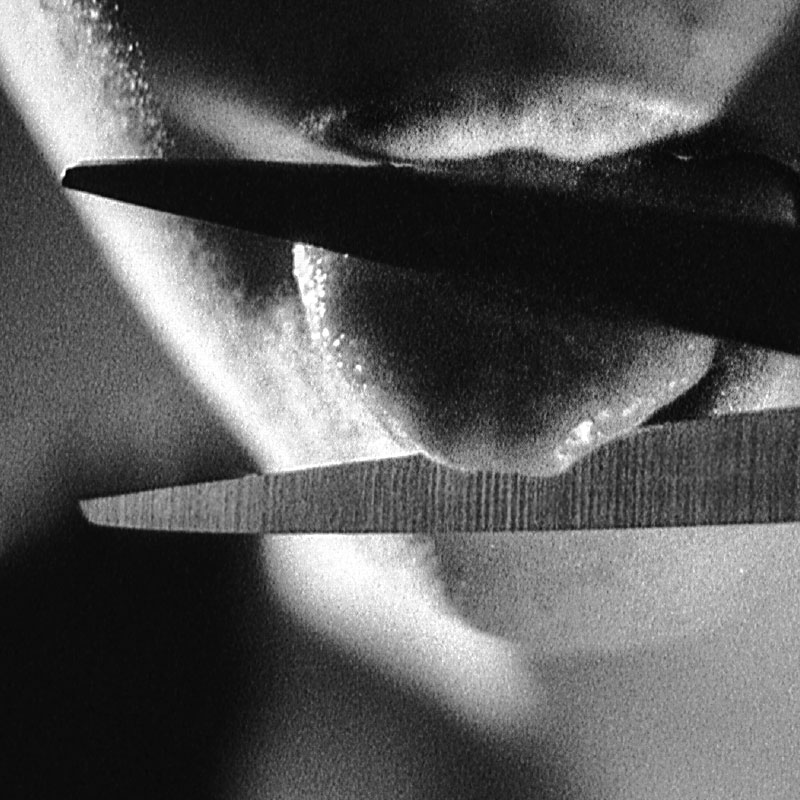
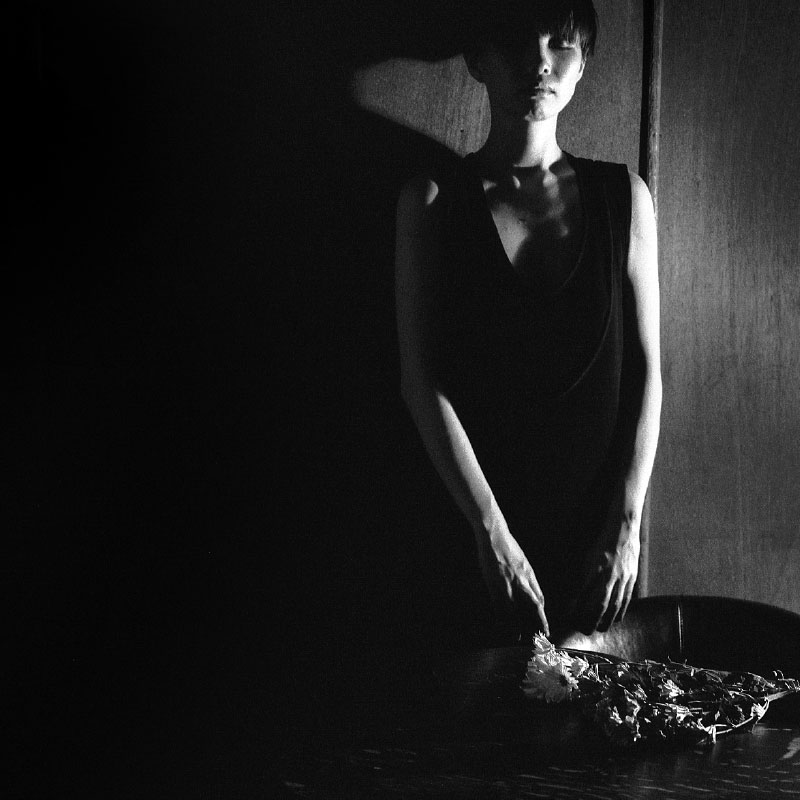
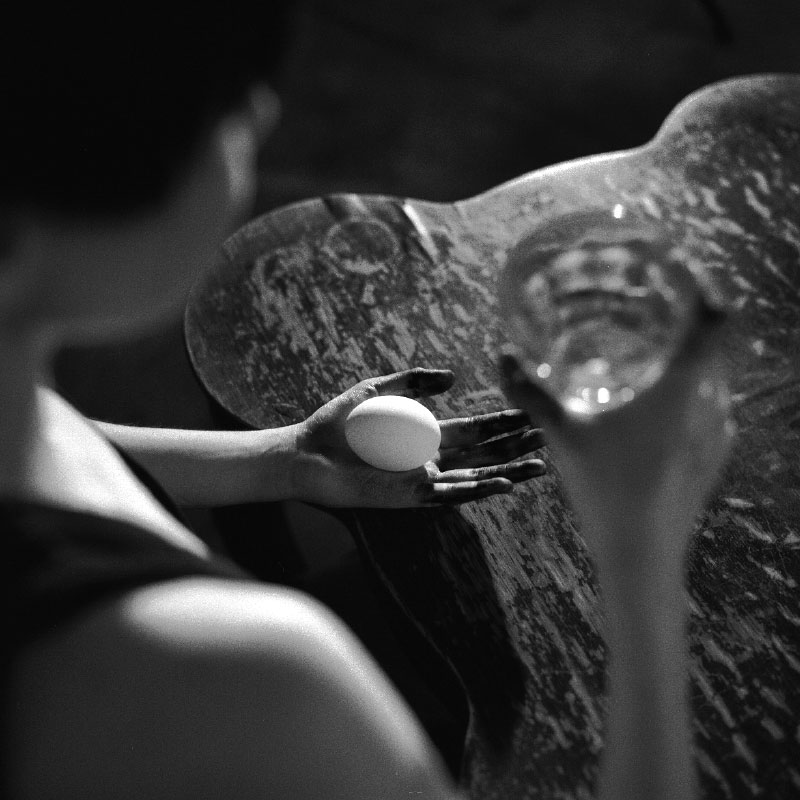
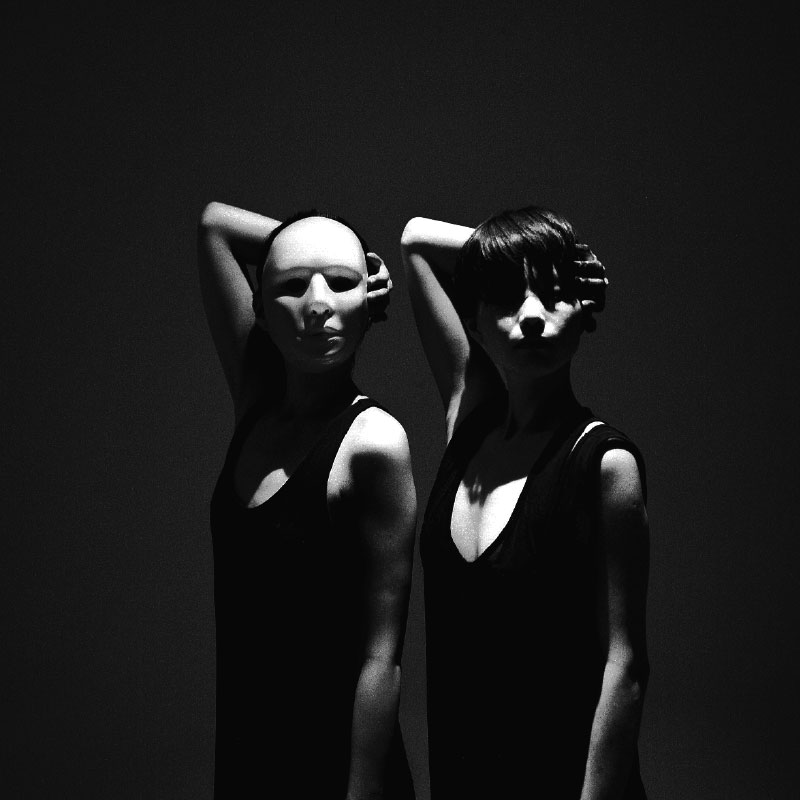

Developed between Tokyo and Lisbon, "ZONA" is a project that emerged directly from faded memories and notes from Nuno's dream-diary. After many sketches the project grew into a photographic documentation of different interior landscapes and situations.
ZONA explores both a mental and physical space - an attempt to represent the unconscious mind and the symbolic nature of archetypes. Always, with a heavy dose of poetry involved.
Nuno's previous work, "State of Mind", dealt with people absorbed and lost in thoughts, in "ZONA" there's a necessity to delve deeper into this particular arena and see how we think and what are our fundamental fears and emotions.
The narrative of this series follows a live-performance and is somewhat similar to a dream experience – one feels both familiarity, intimacy and strangeness. The result is a sensuous, quiet and dark book, delivering images with a memorable cinematic quality.
Comprised of photographs and exclusive texts written by José Luís Peixoto, "ZONA" comes in a beautiful cloth-bound limited edition of 300 copies and can be acquired online through this website or at selected bookshops.
![]()
ZONA explores both a mental and physical space - an attempt to represent the unconscious mind and the symbolic nature of archetypes. Always, with a heavy dose of poetry involved.
Nuno's previous work, "State of Mind", dealt with people absorbed and lost in thoughts, in "ZONA" there's a necessity to delve deeper into this particular arena and see how we think and what are our fundamental fears and emotions.
The narrative of this series follows a live-performance and is somewhat similar to a dream experience – one feels both familiarity, intimacy and strangeness. The result is a sensuous, quiet and dark book, delivering images with a memorable cinematic quality.
Comprised of photographs and exclusive texts written by José Luís Peixoto, "ZONA" comes in a beautiful cloth-bound limited edition of 300 copies and can be acquired online through this website or at selected bookshops.
Exhibitions
2018 - ENFOLA - Faro, Portugal
2016 - Casa da Escrita - Coimbra, Portugal
2016 - Travessa da Ermida - Lisbon, Portugal
2016 - Caravel Art Center - Madeira, Portugal
![]()
2018 - ENFOLA - Faro, Portugal
2016 - Casa da Escrita - Coimbra, Portugal
2016 - Travessa da Ermida - Lisbon, Portugal
2016 - Caravel Art Center - Madeira, Portugal
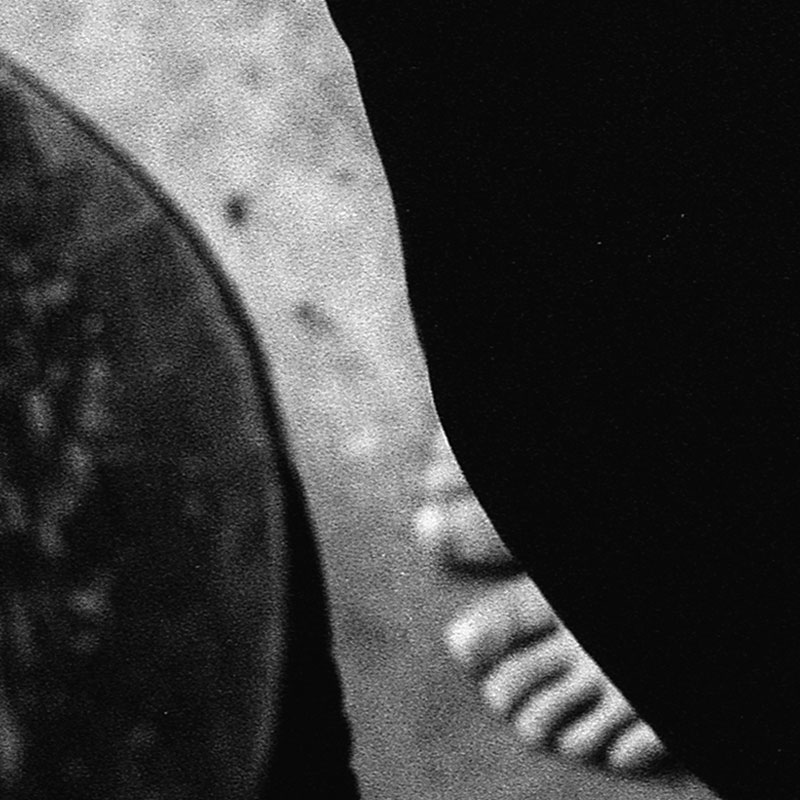
Book Reviews
"(...) The images have the precision of a dream, the details of a clinical precision that refer to surrealist experiments (tongue and scissors that can not fail to remind the eye of An Andalusian Dog by Buñuel). This book explores the unconscious and guides us without knowing what the outcome will be. Some images, stronger than others (but this is an individual choice), will remain printed in our mind. We do not really understand the narration, but snatches of memory keep coming to that memory makes emerge this impalpable unconscious. We discover ourselves, here to tell our dream, unable to decipher all the signs. Emerges finally what is hard to say but which, brick by brick, built our personality in the individual awareness, but also, and this is very present in this book, in its relation to the other. Nuno Moreira dare sketch here the assertion that we only exist by this relation to the other and thus the loss of this relation is our own loss, the loss of this individuality. (...)"
who needs another photoblog, review by Christer Ek (click for full article)
"(...) The book comes with words by José Luís Peixoto that help us navigate through the story Moreira tells through his pictures. It's very much a joint effort. It's a gentle story, but not the most transparent of stories, it's not a come-and-sit-by-the-fire-and-I'll-tell-you-a-story story, or a bedtime story, or a page turner, spine-tingler or tear-jerker of a story. Instead it's a story that you take on the photographer's terms. You have to adjust to his way of seeing, their way of thinking to understand what is happening, and this takes time and effort."
Collin Pantall's blog (click for full article)
"(...) ZONA, like a dream, is a personal experience. It is like when you wake up and try to explain a dream you just had to your significant other…and it all comes irrational if not absurd. The experience is always disappointing in the lack of lucidity that you yourself felt but fail to convey. Experience it yourself. (...)
Japan Camera Hunter, review by Jesse Freeman (click for full article)
"(...) There is something more searing about black & white, something more otherworldly, a better way of telling a story, a way of acclimating movement, curve, form, to text. The models use simple movements – a touching of a shoulder, the extension of a hand… Much like in the altar of a church, or in the making of icons, there is absolutely no detail that is superfluous."
A Miscellarny of Tasteful..., review by Rudy Carrera (click for full article)
"(...) Moreira’s new book may seem miles away from his previous book “State Of Mind”, but I feel it’s a lot closer than you would imagine. State of Mind had a simple design, the street photography images were from various places he had visited and he challenged the viewer to enter his state of mind. But the key element here is that it comes from a deeper place than the usual street photography work. It wasn’t necessarily about the scene he was capturing, but more about why he was interesting in capturing it in the first place.
With ZONA, more care has been put into the book’s design and it is an even deeper psychological experience. The photography reminds me a lot of Eikoh Hosoe’s “Man and Woman” work. Abstract, theatre-like story telling, high contrast black and whites, simple but clever, sensual and full of metaphorical meanings. Peixoto’s text is also the perfect accompaniment. The images get your started and the words ensure you’re kept on track.
I’m not fully certain of the true intention of its story, and I suppose that’s one of its strengths. Individual interpretation is encouraged. But here’s my take on it. I feel it’s a sort of schizophrenic journey. Conversing with oneself. Going in and out of self recognition. Battling and accepting inner demons. I’m not sure if it’s actual schizophrenia or just the feelings everyone experiences when faced with a difficult situation, but I don’t think that matters so much.
I’ll be honest, I’m not usually up for this type of work, or at least, it isn’t the type of thing I go out looking for. However, I was very curious to see how Moreira would go about presenting his new work in comparison to his previous. I suppose I shouldn’t be comparing the 2 at all. Too many photographers box themselves into a genre/style and stick with it. It can get repetitive and boring. Venturing out into other areas and expressing thoughts and ideas in a different manner can be a very helpful way to grow and evolve. I see this happening with Moreira. ZONA is, in my opinion, a step in the right direction and I do hope his next book provides us with something equally intriguing and different once again. (...)"
The New Frame, review by Eric Gunderson
ZONA - A choreography of the psyche
by Elsa Garcia
A dream-room where the words don't emerge and the emptiness becomes overwhelming. Inside, the presence of the body as a work procedure. It is the body that defines the interior and exterior space and it is the body that represents the limit and tangency with reality in a gestural poetry that fades away in the penumbra.
In the time lapse of a day a group of images start to appear. The ambiance, close and intimate, slowly gets contextualized in a panic room that allows urges, instincts, organic impulses and unconscious desires to be foreseen. The story is confined to a space and represents the mental room of the unconscious; it visually disturbs the viewer by the expressive force of images simultaneously unsettling, delicate and poetic.
Nuno Moreira is present and omnipresent persona in this process of construction that reveals images straight from the unconscious. Simultaneously voyeur, the artist incarnates in the object, which is his work, the model, dreams, nightmares, anguishes and anxieties. All this grants to this sequence of images an extreme physicality. The basis and ground for the visual concept comes close to the cinematography of Tarkovsky, Bela Tarr or Bergman.
ZONA encloses a number of fears and dreams springing from an interior universe, by all means difficult to transpose into images. These are for sure key-ideas of an interior world full of absence and emptiness which appeared at a time the author was reading about Jung and the representation of archetypes. "The idea of the abyss fascinates me in all aspects, there is almost a complete necessity of understanding what lies beyond the veil", reveals the author. From the Jung studies, drawings and words appeared, which later gave birth to images. According to Jung "dreams are impartial products of the unconscious psyche, they show us the natural truth with no ornaments". “For Jung, the oneiric symbols, as for that matter any other symbol, are attempts to individualise the anima, the persona, the shadow and other archetypes, and to unify them in a balanced and harmonious whole".
Photographed in Tokyo and finished in Lisbon, ZONA represents a continuity of State of Mind, the previous work of Nuno Moreira. In it were presented photographies of people thinking, resulting of several years of traveling. From an archive of isolated people in different situations appears a common pattern: people absent-minded from reality. In the end, both series portray interior landscapes only represented in different stylistic ways.
A precisión dun soño: Zona, de Nuno Moreira
por Lito Caramés
As sombras dan esplendor á fotografía. ZONA, o novo traballo de Nuno Moreira, vén sendo a precisión dun soño.
A fotografía, esa disciplina tan nova se se compara co debuxo ou coa pintura, xurdiu para copiar a realidade, para dar fe de fisionomías, paisaxes, estampas urbanas. Pero logo transcendeu o rol reprodutor e apostou pola creatividade, a imaxe descoñecida, o instante inmóbil; por buscar a novidade nos encadres, exposicións e velocidades. Fotografía é unha verba composta de dous vocábulos gregos e vén querendo significar: describir a luz. Comprende o espazo que cabe na cativa fiestra da máquina de retratar, o velado espazo onde as tebras esculpen volumes de luz sobre mármores de sombra.
As instantáneas de ZONA, o libro que vén de publicar Nuno Moreira (Lisboa, 1982) son imaxes en branco e negro. E tamén en 3D, polo efecto dese negro que dá volume, por esa luz enfocada en dermes e superficies que esculpe os sentidos. Cada fotografía de ZONA propende os interrogantes ocultos na luz, incrustados na escuridade. Imaxes creativas, inquietantes. Esta serie bebe da tradición retratística, occidental e oriental. Algunhas das instantáneas lembran os claroscuros de Hosoe, outro admirador de Antoni Gaudí. Desde a visión occidental as fotografías de ZONA están inzadas de baleiros. Non son tal. Moreira non sabe que é o horror vacui; pouco lle importa. Os pretendidos baleiros son escuridades que reflicten, espellos de alma para teimas, para incertezas.
A Moreira non lle pon medo a soidade dun corpo fronte á negritude. Tampouco teme a verdade que discorre polas veas da madeira que conforman unha mesa. Moreira limítase a angazar o karesansui con esmero e símbolos, con intención e método.
As instantáneas de ZONA son enigmáticas; regresan dunha noite antiga.
Rostros, silencio,
escuro que tanto di.
Clamor de vida.
ZONA, un libro de espazos para a intimidade
En ZONA (2015) Nuno Moreira enfía as nosas memorias, asalta as brasas que carrexamos de brinquedos infantís, de lecturas, de amores; golpea as nosas lembranzas con suxestivas imaxes de rexistros inconscientes, alí onde non temos defensas. Ao pé da madalena de Proust. ZONA baséase no espazo interior do autor, nas zonas mentais onde o subconsciente tropeza con simbolismos, con categorías estéticas. Por iso é unha obra de arte. ZONA é a precisión dun soño. Non é, por contra, un libro de historias a contar ao pé do lume nas morosas noites de inverno. O autor narra pensamentos, espazos que se reservan aos recunchos non visibles do cotián. Moreira bota man da imaxinación para elaborar un discurso coherente –enfiado coas hedonistas verbas de Peixoto–, que viaxa no transporte do voyeurismo e que ambiciona apelar á inventiva da persoa lectora e transportala ao país das palabras e da imaxe cinemática; a outra realidade que excede obxectos captados pola pequena fiestra da cámara. Outros mundos que se intúen polas voltas de altares ou lupanares. ZONA é, de momento, o último traballo de Nuno Moreira, continuación doutros anteriores como State of Mind (2010-2013).
As fotografías de ZONA mostran corpos, mobles, arquitectura espida –sempre interiores, sempre enmarcados no negro luminoso–, para en realidade confesar pesadelos, estados de ánimo que Nuno Moreira retén nas superficies físicas coas que tropeza a luz, coas que brincan as sombras. As súas estadías no Xapón aproxímano a manifestacións estéticas desa cultura oriental, pois o corpo das modelos que velan nas instantáneas conduce a escenas de teatro nô, o teatro clásico xaponés onde os actores non levan maquillaxe. As imaxes de ZONA tamén son iso: valentes; esencialismos.
ZONA é un libro de artista editado cun esmero especial. Sincero, sensual. O deseñador gráfico que é Nuno Moreira investiu moitos esforzos tamén na consecución do resultado final: o xogo de follas brancas e follas negras, distintos tipos de papel, a alternancia de fotografías e escritos de Peixoto nos tres idiomas, as cubertas grises de austeridade eremita. ZONA é un libro manual. Manual no sentido orixinario da verba: ten o tamaño dunha man estendida. Dicía Alberto Giacometti –o escultor que reducía as súas figuras á mínima expresión corporal– que desde tempos prehistóricos as pezas de arte eran manuais, pequenas, transportables. ZONA bebe da historia da arte, por iso ten o tamaño que ten. Un feixe de impresións máxicas.
Mans abertas, si,
aves de doce voar.
Andar de sombras.
Na súa formación Nuno Moreira casou co cinema. A sétima arte motiva a creación de Moreira en ZONA. A imaxe na que as tesoiras están a punto de seccionar a lingua leva de contado a Buñuel e as súas fantasías recollidas en O Can Andaluz; e a Man Ray no óvalo da face que se mostra/elide após dos carnosos labios. Noutros casos é unha lembranza, un decorado xeral que anima a imaxinar a Nuno con ollares reflexivos, ansias intimistas e mesmo inquietantes a modo dun Bergman. Contemplando unha e outra vez as fotografías de ZONA, repasando a serie de primeirísimos planos, de faces e paredes, de mesas lacadas, de obxectos cotiáns, ao final do percorrido queda un sabor oriental, aroma a sushi, textura de fideo de arroz; unha atmosfera interior, velada, que (salvando as cores) fai choscadelas co filme Fa yeung nin wa (Desexando amar, 2000), de Wong Kar-Wai.
As imaxes de ZONA esvaen o tempo.
Não sei se é sonho, se realidade / Se uma mistura de sonho e vida
Din os expertos que o ouro –mormente o pan de ouro– dá unha luminosidade soberbia, que potencia calquera espazo por pouca luz que ilumine un lugar. Os monxes bizantinos, antes de elaborar unha icona nova na que porían pan de ouro de fondo para informar de que a figura sacra que ían pintar residía noutra dimensión, pasaban un tempo de preparación con xexúns e dietas especiais, dispóndose para a comunicación cos seres sagrados.
Nuno Moreira instala nas fotografías de ZONA fondos negros. Potentes, lumínicos. Non se trata de negro negador. É negro resplandecente. Usa os negros nas súas fotografías como os monxes empregaban o pan de ouro. Nuno Moreira un asceta penitente, zen ou franciscano, na consecución da icona moderna que é a súa obra: a fotografía.
Coas instantáneas de ZONA estaría ben contento Junichirô Tanizaki, o escritor xaponés que dedicou ensaios a gabar a sombra. Alá polos anos 30 do pasado século, Tanizaki –xa daquela– laiábase da aposta que no seu país se estaba a facer polas tecnoloxías occidentais, mormente polo que máis deploraba: a iluminación eléctrica. A excesiva iluminación eléctrica. No seu libro Eloxio da sombra, Tanizaki fártase de enumerar os ámbitos da vida cotiá xaponesa onde a escasa iluminación proporciona misterio, atractivo, fantasía. A súa pluma poética canta as excelencias dun mosteiro preto de Kyoto, dun restaurante onde comer misho supón un acto de fe. Agora estaría encantado de coñecer un occidental, un portugués que vive no seu país e que aprecia as sombras, que interioriza o sabi, a fraxilidade, o efémero; a beleza de que nada é para sempre, nin perfecto.
Cada fotografía un ritual, un verso.
Sentidas costas,
brancura sobre negros.
Un crisantemo.
Hai moitas sombras en ZONA. Son sombras que acompañan a Nuno Moreira, que medran na mochila que –coma todos– carga o retratista consigo. Sombras que lle chegan desde os lenzos de Caravaggio –corpos brancos e fondos negros; tenebrismo–, desde as leccións de Rembrandt, desde os martirios de L’Espagnoletto. Hai sombras que estenden os seus mantos desde o Chiado e desde a Alfama, entre queixas de fado e peiteo de guitarra portuguesa, sombras nos ollares de quen senta na Brasileira e risca os máis saudosos versos: Nun meio-dia de fim de Primavera / tive un sonho como uma fotografia.
ZONA é o traballo dun artesán. Cómpre moito oficio para apostar pola escuridade, polas sombras, e non temer os espesos silencios que berran desde o fondo das luminosas negritudes que definen o delicado ollar do fotógrafo. Se non fose pedantería mesmo veñen ganas de emular a José Saramago e dicir de Nuno Moreira o que el dixo hai anos de Gonçalo Tavares (cando este último tiña a idade actual de Nuno): Não tem o direito de (fotografar) tão bem apenas aos 35 anos: dá vontade de lhe bater!